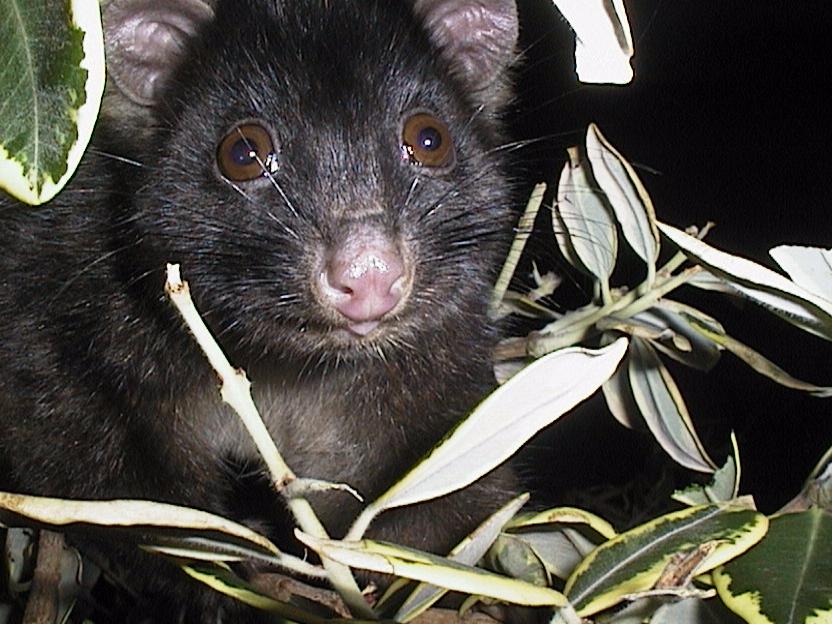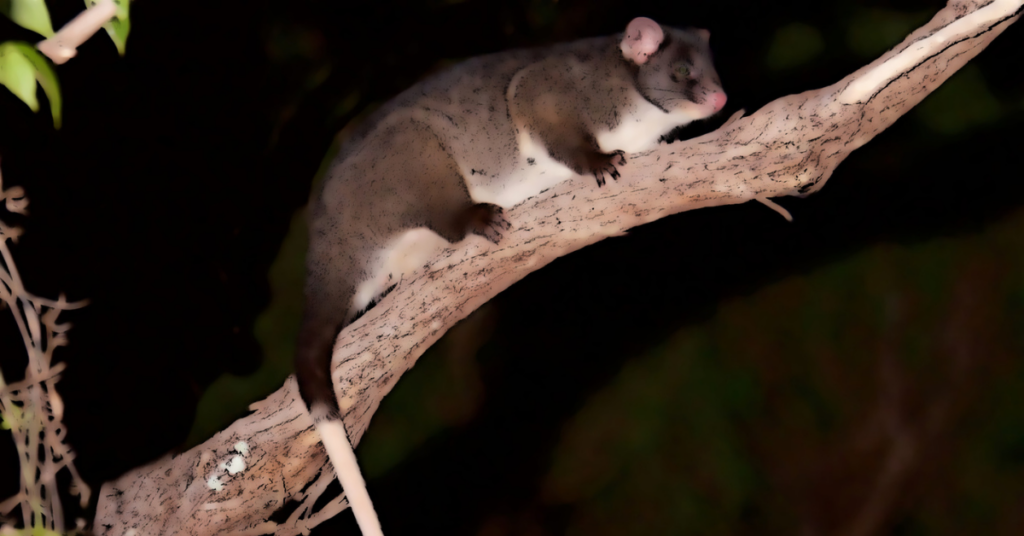The western ringtail possum – also known by its Noongar name Ngwayir – (Pseudocheirus occidentalis) is a critically endangered arboreal marsupial which is endemic to Our South West region of Western Australia. That means it’s found nowhere else on earth!
Description
They have grey or dark brown coats with a distinctive, white-tipped tail. The total body length of adults (including the tail) is 30 to 40cm and they weigh up to 1.1kgs.
They are nocturnal herbivores, sleeping during the day in nests called dreys which they build in trees. Females can have up to 3 joeys at a time, but mostly it’s just one. They remain in their mother’s pouch for 3 months but are dependent on mum for the first seven months of life.
Historically the western ringtail possum’s range was much larger, living throughout Our South West’s forests. Nowadays they are found in only about 10% of their original range. There are 3 main possum populations left, with the one near the South West city of Busselton being the largest. Conservation efforts appear to have arrested the continued decline in recent years with work now focused on strategies that will support re-building numbers.

Across our 20-year history, we have undertaken an extensive catalogue of work in partnership with government, researchers and local landcare and wildlife groups to benefit western ringtail possums and address threats to their survival – particularly habitat loss and predation from introduced species like foxes and cats.
We’ve installed possum bridges, restored habitat, contributed to research outcomes, targeted predators and undertaken community education programs.
What you can do to help the western ringtail possum
- Plant native species in your garden to provide habitat and food for possums, particularly peppermint trees
- If you have remnant bushland on your property, you can protect it by placing a voluntary management agreement or covenant on it
- Protect your remnant bushland by using fencing and controlling weeds and feral animals, this will help native animals including ringtails
- Help prevent possum injuries by keeping your pets inside or in your yard at night (cats and dogs) and drive carefully
- Join your local community group which supports threatened species recovery.
Check out the below catalogue of resources developed across our many years of working to protect and restore numbers of the western ringtail possum.
Rescue a possum with our Possum Drey Giveaway
Connecting canopies for western ringtail possums
We’ve received species-saving grants!
Working with landholders to protect threatened wildlife
Current Projects
Saving Native Species in Wellington National Park
Considering nature during emergencies
Past Projects
Improving possum rehabilitation outcomes
Threatened Species Conservation
Plants for a possum friendly garden
Citizen Science – Annual Possum Tally
Article highlighting research on cities as safe havens for native species
Turning Gardeners into Conservationists Report
Relocating western ringtail possums video by DBCA
Recovery Hub – Living with western ringtail possums

Find out more about our Environmental Conservation work via the below links.
